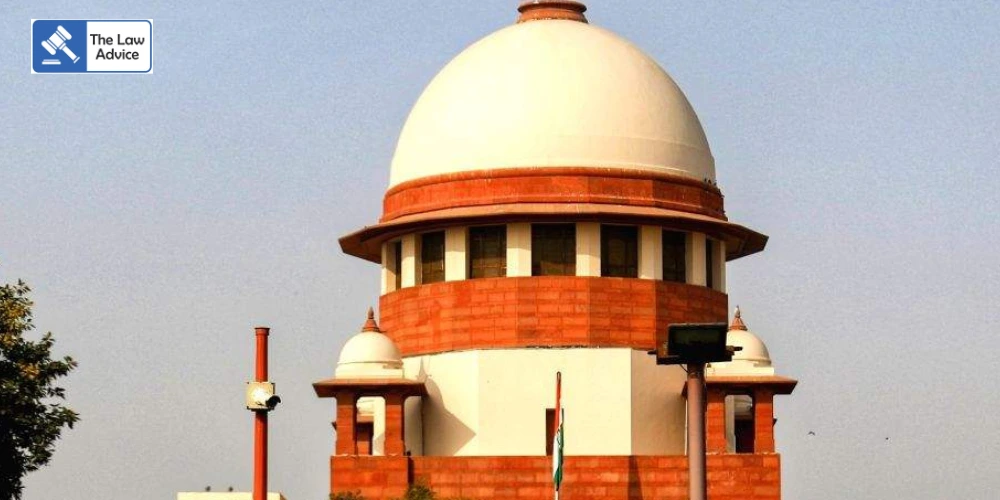
Former Supreme Court judge Justice Rohinton Nariman on Wednesday remarked that Shanti Bhushan, though serving as Law Minister after the Emergency, deliberately chose not to delete the words “secular” and “socialist” from the Preamble—terms introduced during the 42nd Constitutional Amendment.
Delivering the Shanti Bhushan Centenary Memorial Lecture, Justice Nariman traced Bhushan’s long legal and political journey, highlighting his work as Law Minister in the Janata Party government.
The expressions “secular” and “socialist” were incorporated in 1976 during the Emergency. Justice Nariman noted that Bhushan, despite rolling back many excesses of the 42nd Amendment through the 43rd and 44th Amendments, decided not to disturb these two concepts, since the Constitution itself inherently reflected both ideals.
“Regarding the 42nd Amendment, Shanti Bhushan’s wisdom ensured that the terms remained. He never even attempted their removal because it is self-evident that our Constitution is secular, and the Directive Principles demonstrate its socialist orientation,” Justice Nariman said.
He added that Bhushan tried to formally define “secular” as equal respect to every faith and “socialist” as uplifting the marginalized. These explanations, however, were rejected by the Rajya Sabha, then dominated by the Congress.
Nariman also emphasized the extensive rollback Bhushan achieved as Law Minister—repealing Article 31D on “anti-national activities”, restoring previous standards for disqualification of legislators, reviving the Supreme Court’s direct jurisdiction over election disputes involving the President and Vice President, and strengthening procedural checks on the declaration of Emergency. Bhushan also ensured that Articles 20 and 21 could not be suspended even during Emergency.
He further removed the Representation of the People Act and MISA from the Ninth Schedule and oversaw the deletion of the right to property as a fundamental right. Nariman estimated that Bhushan managed to accomplish “nearly 75%” of his reform agenda.
Recalling another defining episode, Nariman spoke about Bhushan’s refusal to retract his claim that several Chief Justices of India were corrupt. Bhushan maintained his stand in court. “He was a person of unwavering conviction,” Nariman said. “When asked if he would withdraw the allegation, he replied firmly, ‘No, I am here.’ He was ready to face contempt, but no one proceeded against him.”
Referring to the historic Zamindari abolition case where Bhushan appeared as Advocate General of Uttar Pradesh, Nariman said Articles 31A to 31C, inserted through the First Amendment, allowed certain provisions to evade scrutiny under other parts of the Constitution. Article 31B, shielding Ninth Schedule laws from review, remained “a major blemish,” he added, since even a law previously struck down can be revived simply by placing it in the Schedule.
Nariman then recounted Bhushan’s pivotal role in the challenge to Indira Gandhi’s election, where he represented Raj Narain. Through meticulous cross-examination, Bhushan established corrupt electoral practices, including Yashpal Kapoor functioning as Gandhi’s election agent while still a government servant. Justice Jagmohan Lal Sinha of the Allahabad High Court ultimately invalidated Gandhi’s election.
Nariman hailed Justice Sinha as an unsung hero who, like Justice HR Khanna, withstood political pressure and decided the case purely on legal grounds. He recalled that inducements were hinted at, but Justice Sinha remained unmoved.
During the pending appeal, Indira Gandhi introduced the 39th Amendment, insulating the elections of top constitutional authorities from judicial review. Nariman highlighted that Bhushan successfully convinced four judges—who had previously rejected the basic structure doctrine—to nonetheless apply it, resulting in parts of the amendment being struck down. Gandhi also added the RP Act to the Ninth Schedule and introduced retrospective amendments redefining “candidate” and resignation timelines of government servants. With these changes in place, the Supreme Court upheld her election.
Nariman then referred to the ADM Jabalpur case, where Bhushan argued that personal liberty existed independently of Article 21. Four judges disagreed; only Justice HR Khanna dissented. Nariman said he felt honoured to be part of the later Privacy judgment, where a nine-judge bench overturned ADM Jabalpur. Justice Khanna, he added, had already predicted that his dissent would cost him the Chief Justice’s post.
Nariman also mentioned Shanti Bhushan’s internal dilemma as Law Minister regarding whether Justice YV Chandrachud should be superseded for his role in ADM Jabalpur. Bhushan consulted all Supreme Court judges and 18 Chief Justices of High Courts; barring one Supreme Court judge and one High Court Chief Justice, all favoured upholding the established seniority principle.
He also spoke about reforms Bhushan could not accomplish—removing Articles 368(4) and (5), reversing tribunalisation under Article 323A, and shifting forests and education back to the State List.
Nariman recalled that Bhushan resigned from the BJP in 1985 after concluding the party was not secular, later joined the AAP, and quit again when he felt ticket distribution lacked integrity. He described Bhushan as a man who stood fiercely by his beliefs.
Concluding, Nariman remembered his last interaction with Bhushan, noting that even at 95, Bhushan had razor-sharp memory of the cases he had argued. “He may no longer be with us, but he remains alive in our hearts and minds,” Nariman said.
Website designed, developed and maintained by webexy